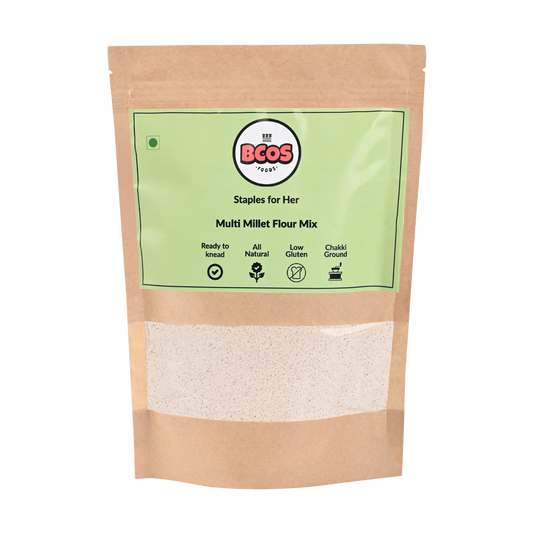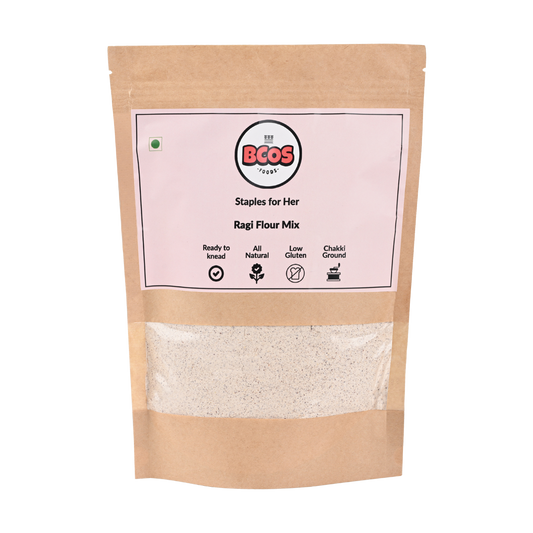Want a BTS (we mean ‘behind the scenes’ and not the band) snapshot of your overall health? Blood tests are a good way to get in! They also help you catch illness or diseases early, and to see how well your body reacts to treatments for various conditions. While many people get routine blood tests at least once a year, the exact frequency could vary based on multiple factors – type of tests, specific risk factors, any unusual symptoms you may be experiencing and your doctor’s discretion.
Why are they so bloody important? Because it consists of a variety of different panels that check for very selective components in your blood, including electrolytes, hormones, and special proteins.
HERE’S A LIST OF 12 ANNUAL BLOOD TESTS YOU SHOULD CONSIDER DOING ONCE A YEAR –
1. Vitamin B12 Folate – For beauty, brains & a baby!
Helps access your brain, blood and nervous system’s health. As per one study, higher blood levels of vitamin B12 could also improve fertility in women undergoing infertility treatment. Another benefit of Vitamin B12 Folate – it reduces inflammation, dryness, and acne.
2. Vitamin D – For bones, biceps & a baby!
To access bone health, fertility and immune health. The 25-hydroxy vitamin D test is one of the most efficient ways to monitor your Vitamin D levels.
Vitamin D must go through several processes in your body before your body can use it. One of its first transformations happens in the liver where your body converts Vitamin D into a chemical known as 25-hydroxyvitamin D aka calcidiol.
So, the amount of 25-hydroxyvitamin D in your blood is a good indicator of how much Vitamin D your body has. The test can determine if your vitamin D levels are too high or too low.

3. Thyroid – To check what’s affecting your metabolism and moods
These tests help to check your metabolic/thyroid function and also assess your body for any autoimmune disorders.
Why is taking a thyroid test important? It affects more than just your metabolism.
2 of the most common thyroid conditions resulting in unbalanced hormone levels are hypothyroidism and hyperthyroidism. Symptoms of both these include mood swings and change in weight.
If your thyroid test levels are not normal, you may need to run full panel with reverse thyroid values – T3, T3 free, T3 reverse. T3, T4 free, thyroid peroxidase and thyroglobulin antibodies and TSH.
4. Comprehensive Metabolic Panel – 1 test on the lookout for 14 substances in your blood
This test measures 14 different substances in your blood to give vital information about your body’s chemical balance and metabolism.. A CMP tests the following 14 substances
- Glucose – your body’s main source of energy.
- Calcium – mineral essential for proper functioning of your nerves, muscles, and heart.
- Sodium, potassium, carbon dioxide, and chloride – electrolytes aka electrically charged minerals to help control the amount of fluids and the balance of acids and bases in your body.
- Albumin, a protein made in the liver.
- Total protein, which measures the total amount of protein in the blood.
- ALP (alkaline phosphatase), ALT (alanine transaminase), and AST (aspartate aminotransferase) – different enzymes made by the liver
- Bilirubin – a waste product made by the liver.
- BUN (blood urea nitrogen) and creatinine – waste products removed from your blood by your kidneys.
5. Iron Status – One for the red blood cells
Without enough iron, your body can’t produce enough of a substance in red blood cells that enables them to carry oxygen to the blood. That’s why you need to test your iron deficiencies and body’s iron stores. And ensure you ask for total iron, total iron binding capacity, and ferritin.
6. Lipid Panel – Checking if you had one too many… samosas during the festive season
The Lipid Panel will check for the following
- Total cholesterol.
- LDL (low-density lipoprotein), the “bad cholesterol”
- HDL (high-density lipoprotein), the “good cholesterol”
- Triglycerides, the most common type of fat in your body
If possible, try asking for your omega 3 and omega 6 levels too.

7. H1BA1C – Checking how sweet is your blood
The Haemoglobin A1C (H1BA1C) helps assess the average plasma glucose in your bloodstream over the last 2-3 months.
It also helps reflect the level of glucose stuck onto your red blood cells during that period. You don’t need to fast before this test or prepare for it in advance – it can be taken at any time.
The A1c test helps measure and detect diabetes in recent times. And is usually preferred by doctors because of its reliability.
8. Fasting Insulin – 8 hours of food resistance to identify insulin resistance!
Assesses any level of insulin resistance that could contribute to blood sugar irregulation, diabetes or other metabolic resistance.
9. Hormone Panel – Are you hormonal?
The Hormone Panel test assesses levels of the hormones in women as they age. These include –
DHEA-S – Produced mostly by the adrenal glands, this plays a fundamental role in hormone balance, supporting one’s immune function, energy, mood, and maintenance of muscle and bone mass.
Estradiol – This is the primary female sex hormone and is a form of oestrogen responsible for regulating menstrual cycle, skin elasticity, bone strength, bladder and vaginal health.
Free and Total Testosterone – Aka the feel-good hormone. It helps maintain a woman’s libido, bone and muscle mass, cardiovascular health, mood, and sense of well-being.
Progesterone – Helps balance the powerful effects of oestrogen, an imbalance between progesterone and oestrogen is linked to weight gain, insomnia, anxiety, depression, migraine, cancer, uterine fibroids, ovarian cysts, and osteoporosis.

10. HSRCP – Looking out for your heart
Checks for acute illness and long-term low-grade inflammation. It is also used to predict the risk of developing heart disease and its complications. Higher levels are linked to a higher risk of these problems.
11. Complete Blood Count – Checking if you’re at the ‘pink’ of your health
To test red and white blood cells – the important players in immune function, vitamin deficiencies and oxygen transportation.

12. Homocysteine – The one that checks if you’re happy!
Used to measure the amount of homocysteine, an amino acid in the body, diagnose vitamin B6, B9 or B12 deficiency. It also provides an insight into inflammation in your body and methylation – a critical biochemical process that helps us make neurotransmitters, such as serotonin, dopamine, adrenaline, norepinephrine and melatonin.
Now you know why it’s important to get tested – your body changes according to what’s happening inside. If for instance your Vitamin D levels are high, then taking any more could be harmful. But if they’re low you need to take your supplements. To stay on top of your health, it’s good to get your levels checked beforehand. Some doctors suggest maintaining a journal or excel every year to check your levels – so your health is on track!
We offer personalised doctor and nutrition counselling to repair your overall health. Also, do checkout our tasty millet flour staples to take charge of your nutritional modifications for long term reproductive health management.





